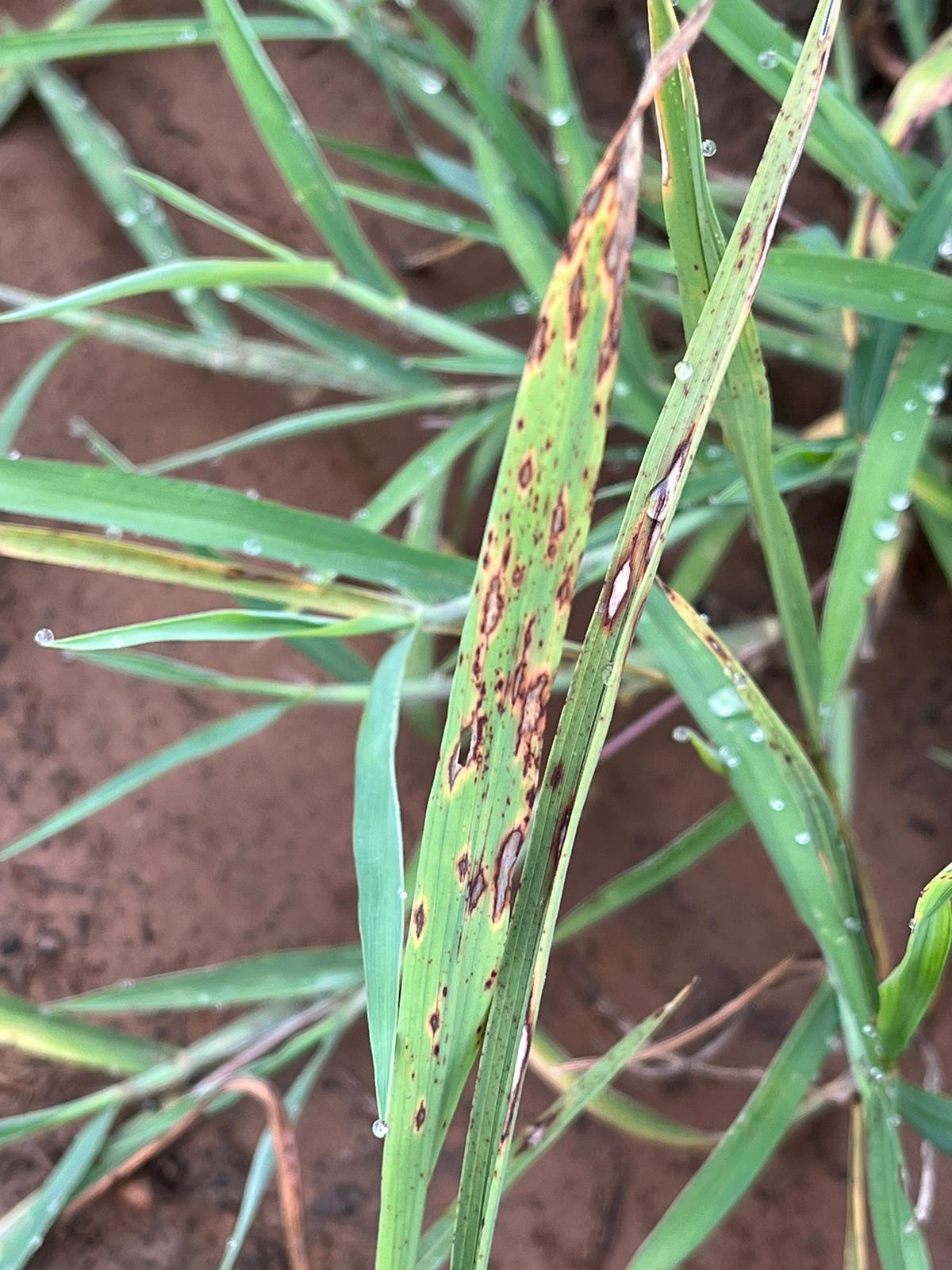Rice leaf blast gets early start, Arkansas growers should scout now
By Sarah Cato
U of A System Division of Agriculture
June 21, 2024
Fast Facts:
- Rice leaf blast reported in Cross, Randolph, Prairie and Jefferson counties
- Scouting is critical to avoid yield loss
- Report leaf blast to cnicolli@uada.edu
(305 words)
(Newsrooms: Download photos of rice with leaf blast.)
LITTLE ROCK – With early planted rice comes earlier-than-expected issues.

Rice leaf blast, a fungal disease caused by the pathogen Magnaporthe oryzae, is most commonly observed during the late vegetative to early reproductive stages of the rice plant. This season, Arkansas rice is reaching reproductive growth stages very quickly, with blast reports beginning as early as the first week of June.
“We received reports of rice blast in Cross and Randolph counties earlier than usual this year,” said Camila Nicolli, extension plant pathologist for the University of Arkansas System Division of Agriculture. “Humid and wet conditions paired with early rice development fueled the early start.”
Because blast can lead to significant yield losses, Nicolli recommends scouting rice fields.
“Scouting is especially important in fields with a history of blast or with conditions that favor the disease like low-lying areas, areas surrounded by tree lines and fields with susceptible cultivars,” Nicolli said. “Focus scouting efforts on tree lines, dry field edges, levees and areas with greener, denser canopies due to excess nitrogen and double drilling.”
Symptoms can be found by opening the canopy to inspect lower leaves. Those scouting for leaf blast should look for small, diamond-shaped lesions with gray centers and brown margins. Early symptoms may appear as grayish-black spots.
As far as treatment options go, Nicolli recommends holding off on fungicides unless the disease is burning down areas of the field.
“We recommend increasing flood depth to 4 inches to suppress disease development until early heading stages,” she said. “At heading, a fungicide application may be considered for prevention of neck and panicle blast.”
Control options for rice blast can be found in the 2024 Arkansas Rice Management Guide.
Nicolli asks growers to alert her and her lab of leaf blast reports across the state. She can be reached at cnicolli@uada.edu or 870-830-2232.
To learn about extension programs in Arkansas, contact your local Cooperative Extension Service agent or visit www.uaex.uada.edu. Follow us on X and Instagram at @AR_Extension. To learn more about Division of Agriculture research, visit the Arkansas Agricultural Experiment Station website: https://aaes.uada.edu. Follow on X at @ArkAgResearch. To learn more about the Division of Agriculture, visit https://uada.edu/. Follow us on X at @AgInArk.
About the Division of Agriculture
The University of Arkansas System Division of Agriculture’s mission is to strengthen agriculture, communities, and families by connecting trusted research to the adoption of best practices. Through the Agricultural Experiment Station and the Cooperative Extension Service, the Division of Agriculture conducts research and extension work within the nation’s historic land grant education system.
The Division of Agriculture is one of 20 entities within the University of Arkansas System. It has offices in all 75 counties in Arkansas and faculty on five system campuses.
Pursuant to 7 CFR § 15.3, the University of Arkansas System Division of Agriculture offers all its Extension and Research programs and services (including employment) without regard to race, color, sex, national origin, religion, age, disability, marital or veteran status, genetic information, sexual preference, pregnancy or any other legally protected status, and is an equal opportunity institution.
# # #
Media Contact:
Sarah Cato
scato@uada.edu
870-815-9035